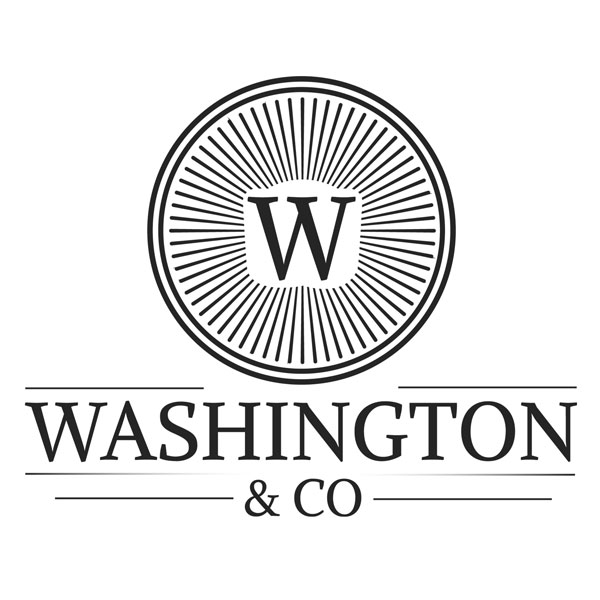Introduction
Inflation doesn’t just impact your daily spending—it can also play a significant role in your tax planning. From tax brackets to deductions and credits, inflation adjustments made by the IRS each year can shift your tax obligations and create opportunities to optimize your strategy.
At Washington & Co Inc., we help you understand these adjustments and adjust your tax plan accordingly so you can minimize liabilities and make the most of inflation-related changes.
How Inflation Impacts Taxes
The IRS makes annual adjustments to tax brackets, deductions, and credits to account for inflation. These changes are designed to prevent “bracket creep,” which occurs when inflation increases your income nominally, pushing you into a higher tax bracket without an actual increase in purchasing power.
For taxpayers, this means that understanding these inflation adjustments can create new opportunities to save on taxes, reduce liabilities, and maximize credits.
Key Inflation-Adjusted Changes for 2025
1. Updated Tax Brackets
The IRS adjusts income tax brackets annually to reflect inflation. For 2025, the brackets have shifted upward, meaning you can earn more before moving into a higher tax rate.
For example:
- The 10% bracket applies to incomes up to $11,600 for individuals (up from $11,000 in 2023).
- The 24% bracket starts at $100,500 for individuals (up from $95,375 in 2023).
What This Means:
If your income remains steady, you may find yourself paying a lower effective tax rate due to the bracket adjustments. This creates an opportunity to reassess your income and deductions for potential savings.
2. Standard Deduction Increases
The standard deduction has increased for 2025, which means fewer taxpayers will need to itemize deductions:
- Single filers: $14,600 (up from $13,850 in 2023)
- Married couples filing jointly: $29,200 (up from $27,700 in 2023)
What This Means:
With a higher standard deduction, it’s easier for many taxpayers to reduce their taxable income without tracking individual expenses like mortgage interest or charitable donations.
3. Retirement Contribution Limits
Inflation has also led to increases in retirement contribution limits, offering opportunities for higher tax-deferred savings.
- 401(k) contributions: $23,500 for 2025, up from $23,000.
- IRA contributions: $7,000, up from $6,500.
- Catch-up contributions for 50+: Remain unchanged at $1,000 for IRAs and $7,500 for 401(k)s.
What This Means:
Increasing your retirement contributions allows you to reduce taxable income now while growing your savings tax-deferred for the future. Business owners, self-employed individuals, and employees should take full advantage of these limits to save money and maximize retirement wealth.
4. Adjustments to Tax Credits
Several tax credits have been adjusted for inflation in 2025, including the Earned Income Tax Credit (EITC) and the Child Tax Credit. These increases make it possible for eligible taxpayers to reduce their tax bill or receive larger refunds.
For example:
- The EITC maximum credit for taxpayers with three or more qualifying children has increased to $7,000 (up from $6,935).
What This Means:
If you qualify for tax credits, these inflation-adjusted increases may provide additional relief. Proper tax planning ensures you’re taking full advantage of all eligible credits.
How to Leverage Inflation Adjustments to Your Advantage
Revisit Your Withholding and Estimated Payments
With changes to tax brackets and credits, your withholding or estimated tax payments may no longer align with your new tax liability. Adjusting your payments can help you avoid penalties while keeping more cash in your hands throughout the year.
Maximize Retirement Contributions
Take full advantage of the higher limits for 401(k)s, IRAs, and other retirement accounts. Increasing contributions not only boosts your retirement savings but also reduces your taxable income for the year.
Plan Charitable Contributions and Itemized Deductions
If the standard deduction increase means itemizing deductions no longer makes sense, you may want to adjust your charitable contributions or other deductible expenses to fit a multi-year tax strategy. This approach, known as “bunching deductions,” allows you to maximize savings by grouping expenses in specific years.
Optimize Tax Credits
Make sure you’re aware of the inflation-adjusted thresholds for tax credits. Whether it’s the Earned Income Tax Credit, Child Tax Credit, or other credits, staying informed ensures you’re not leaving money on the table.
Why Inflation Matters for Business Owners
For business owners, inflation adjustments offer unique opportunities to optimize tax strategies and reduce liabilities:
- Retirement Plans: Business owners can contribute more to SEP IRAs or Solo 401(k)s, taking advantage of higher limits to reduce taxable income.
- Employee Incentives: Adjustments to tax credits or deductions for offering employee benefits like retirement matching or health plans can save your business money.
- Income Planning: If your income has increased, consider adjusting salary distributions or reinvesting profits to stay in a favorable tax bracket.
At Washington & Co Inc., we help business owners navigate these changes to optimize savings and long-term financial growth.
How Washington & Co Inc. Can Help
Navigating inflation-related tax changes can be complex, but you don’t have to do it alone. At Washington & Co Inc., we:
- Analyze your financial situation to identify opportunities from inflation adjustments.
- Help you optimize your retirement contributions and tax credits.
- Guide you in adjusting your tax withholding, deductions, and estimated payments.
- Create a customized tax plan to ensure you’re saving as much as possible while staying compliant.
Conclusion
Inflation doesn’t have to mean higher taxes—it can actually work to your advantage. By understanding inflation adjustments to tax brackets, deductions, and credits, you can make strategic decisions that reduce your tax liability and optimize your financial future.
At Washington & Co Inc., we’re here to guide you through these changes and help you take full advantage of the opportunities they provide.
Ready to Adjust Your Tax Strategy for 2025?
Contact us today to schedule a consultation and let us help you plan smarter, save more, and stay ahead of inflation’s impact on your taxes.
